Applying to tertiary institutions shouldn’t be a scary process.

Here are some ways to prepare yourself!
Being in matric or grade 11 is enough pressure and responsibility on its own; adding tertiary applications to the list only makes the position that much more daunting for those who already have a great deal on their plate.
First, learners need to focus on their academic performance and which career path they would like to follow, and then they need to decide on the tertiary institution that would best suit them.
This often adds a great deal of additional stress to the learner’s daily routine, particularly when planning and preparing applications to enrol in various higher education institutions.
The Aleit Academy understands how stressful this application process can be for high school students and young adults, especially those who often compare their journey to that of their friends.
For this reason, we have put together a list of tips for young learners who are preparing to apply for the next step toward their future education.
Take an aptitude test!
The aim of the Academic Aptitude Test (AAT) is to serve as an objective, reliable and valid aid in counselling learners concerning choices of subject and/or occupation.
Students encounter a variety of aptitude tests throughout their schooling as they begin to think about what they might like to study or pursue as a career.
These tests can sometimes give a general idea of what might interest students in a future career.
For example, a student might take an aptitude test suggesting that they are good with numbers and data.
Such results could therefore suggest that a career as an accountant, banker, or stockbroker would be a good fit for that particular student.
However, other students might find that they have strong language and verbal skills which could suggest that a career as an English teacher, writer, or journalist might be a good choice based on their skills.
Some schools also offer career counsellors to their students and in some cases, learners will need to visit an external career counsellor to assess their interests.
This can likewise assist in deciding on what to study.

Which institution does it best?
Once the grounds for what to study are assessed, it is best to then have a look at all the possible institutions that could offer the subject or courses that the student is interested in.
There are a vast number of elements to consider when establishing what makes an institution unique.
And while none of them makes the institution either better or worse overall, these differences can illustrate whether an institution is a good or bad choice for the individual.
Remember: what makes an institution the “right” choice or the best first very much depends on what the student wishes to gain from their qualification and study experience.
1. How can one tell institutions apart?
Public vs Private Institutions
While all tertiary institutions are to be registered with the government, public institutions (including most universities) are funded by the government whereas private institutions are independent and rely on full tuition fees to subsidise students.
Specialities
Although most institutions offer a mix of academic courses and others that are more practical or vocationally oriented, some institutions emphasise one or the other.
With this, some also specialise in particular fields; for example, teaching or research.
International Experiences
International experiences are often a highlight of tertiary studies, so be sure to find out whether the institution offers international exchanges or internships.
These opportunities will allow students to study abroad and tour overseas campuses for added perspective and new insights.
Facilities
Institutions will differ concerning the facilities on offer to students (such as sporting facilities, student residences, eateries, libraries and student study spaces).
The size difference is also a big determinant, with larger campuses offering a variety of facilities to cater for all and smaller campuses often having a smaller range of more specialised facilities.
Atmosphere
Every institution has a different atmosphere.
This is difficult to define but could make or break the overall experience, so be sure to take the time to visit the institution.
One can attend Open Days to get a good feel for what to expect from the facilities, the lecturers, and the students, so these opportunities are highly recommended.
Book your spot for The Aleit Academy’s Open Day: 31 March at 13:00 or 1 April at 09:00.
Cost
This is always an important question to consider – are the institutions’ tuition fees affordable, and does the institution offer payment plans, bursaries or extensive scholarship schemes for those in need?
Find out exactly what is included in the tuition fees and what will be excluded as well.
Contact us now to enquire about The Aleit Academy’s tuition fees.
2. Research the institution!
Once the student has a manageable shortlist, the next step would be to complete some in-depth research into the various choices so that the learner can make a confident decision.
The more research conducted, the better.
The aim here is to get the best possible idea of what it would be like to study at the preferred institutions so that the learner’s expectations match the reality.
If the starting point is difficult to narrow down, try the following research tools.
Attend an Open Day
When it comes to researching a tertiary institution, seeing is believing.
Open Days allow the student to explore the campus, attend information sessions, talk to staff, and view all services and facilities for themselves to get a real feel for the campus.
Word of Mouth
Speak to the people who know the institution best – the students – and ask as many questions as possible.
Those who have attended the prospective institution can also help, as well as those who are on campus on Open Days.

Apply to more than one institution!
There are hundreds of tertiary education institutions to choose from, and selecting the right one can seem like a monumental task.
However, a great way to start the search is by making a shortlist of all the institutions that the student might like to consider.
Hereafter, the list can be narrowed down according to which would be the best fit – do this by weighing up each institution according to certain factors that are most important.
To narrow down the list, consider the following:
Field of Study
If the student has a specific career in mind, one may find that only a few institutions in the area offer an appropriate course (and if it’s really specific, one may even become limited to only a few institutions in the entire country).
Another factor to consider is that while several institutions offer courses in various areas of study, only a few excel in that specific field.
Location
Many students opt for an institution that is convenient to their home, which narrows down the choices considerably.
Others are willing to move (or are required to move) to find an institution that offers their preferred course.
If the learner has to move away from home, be sure to scope out the on-campus and off-campus accommodation options.
Did you know The Aleit Academy has accommodation?
Study Mode
Students may find that some institutions offer different study methods for each course.
If a part-time or distance education option is required, this may narrow down the shortlist of appropriate institutions considerably.
Entry Requirements and Flexibility
An institution’s entry requirements are also likely to be a deal-breaker.
Each institution has entry requirements with required prerequisites often differing considerably between them, even for similar courses.
Knowing the answers to the questions above will give students better peace of mind when completing the application process and will also manage their expectations.
Applying to tertiary institutions has become more competitive in recent years, so it’s likewise important to bear in mind that meeting the institutions’ minimum entrance criteria does not guarantee an acceptance letter.
Applying to multiple institutions increases one’s chances of acceptance and allows the learner to keep their options open.

What documents could be required as part of your application process?
Almost all universities and tertiary institutions nowadays have an online application system for prospective students to make use of.
Students can apply directly through the websites of these institutions as well as submit the required documentation.
Take note of the following documentation that could be required along with the application to prepare in advance:
- The student’s application form
- The student’s matric certificate (or latest report of results if currently in grade 11)
- A copy of the student’s ID
- Proof of residence
- A copy of the student’s most recent resumé
- A copy of the student’s Study Visa
- A copy of the parent/guardian/sponsor’s ID
- A copy of the parent/guardian/sponsor’s most recent payslip
It is important to pay close attention and follow specific instructions when applying to a tertiary institution, especially when applying to multiple tertiary institutions simultaneously.
If the application form isn’t completed correctly, the student’s chances of being accepted are decreased.
Visit The Aleit Academy’s application page to find out what you will need to apply.
When are the application closing dates for tertiary institutions?
To ensure that the learner has sufficient time to complete or compile all the abovementioned documents, learners should be aware of the closing dates for all applications as well as registration.
To make the application process less stressful for learners who are interested in The Aleit Academy’s Diploma in Event Coordination, or our Swiss Diploma in Hotel and Tourism Management, applications are open all year round until we reach our capacity of 40 students per intake.
Apply early!
Most tertiary institutions in South Africa propose a due date for their applications, so to avoid the stress of last-minute applications, rather apply as soon as the applications are open.
For private institutions, the earlier you apply, the sooner you are likely to receive your acceptance letter which will provide peace of mind for those who know that their spot is secure.
This will also ensure you have sufficient time to apply for student loans, bursaries or student visas.
Apply to an accredited institution!
Ensure that you apply to an institution that is accredited; this will ensure increased employability after one’s studies.
Be sure to check if they are registered with the Department of Higher Education or an accreditation body and that it’s not a fraudulent organisation.
These days, receiving proper education is just as important as receiving the necessary hands-on experience in the field.
When considering one’s options, look at which practical elements and experiences different institutions offer that would put a learner’s employability above the rest.
The Aleit Academy prides itself in providing courses that offer both theoretical and practical training (50/50 split) in the form of workshops, internships, and additional short courses.

Our final thoughts…
The process of applying to tertiary institutions can be daunting, but it doesn’t have to be an overwhelming process.
All it takes is a little bit of planning and some research before applying.
The sooner a student applies, the sooner they will receive feedback.
Don’t forget to look out for a formal letter or email from the tertiary institution accepting or declining the application (including in the junk and spam folders).
And finally, if one’s fails to be accepted on their first try, remain positive and try again next year!
When receiving a formal letter or email of acceptance;
- The student will usually have a few months in which to accept based on their final results (so no slacking off just yet!). Remember to accept the offer and to make sure that in the following weeks or months, the Minimum Initial Payment (MIP) is paid.
- The MIP is the minimum amount of your fees which must be paid to secure the student’s place at the institution. It is also often what must be paid to secure a place in a residence.
The Aleit Academy would like to encourage all learners to make decisions about their futures earlier rather than later, and with this, to remember that deciding on one’s future shouldn’t be determined based on where a friend goes or where a parent has previously completed their studies.
If you are unsure of what you are interested in, enrol for a course that offers a few different career outcomes in line with where your interests lie or take some time building experience before making such a big commitment.
We hope that a career in hospitality is for you and that this article will make your life just a little bit easier when it comes to applying to The Aleit Academy.

